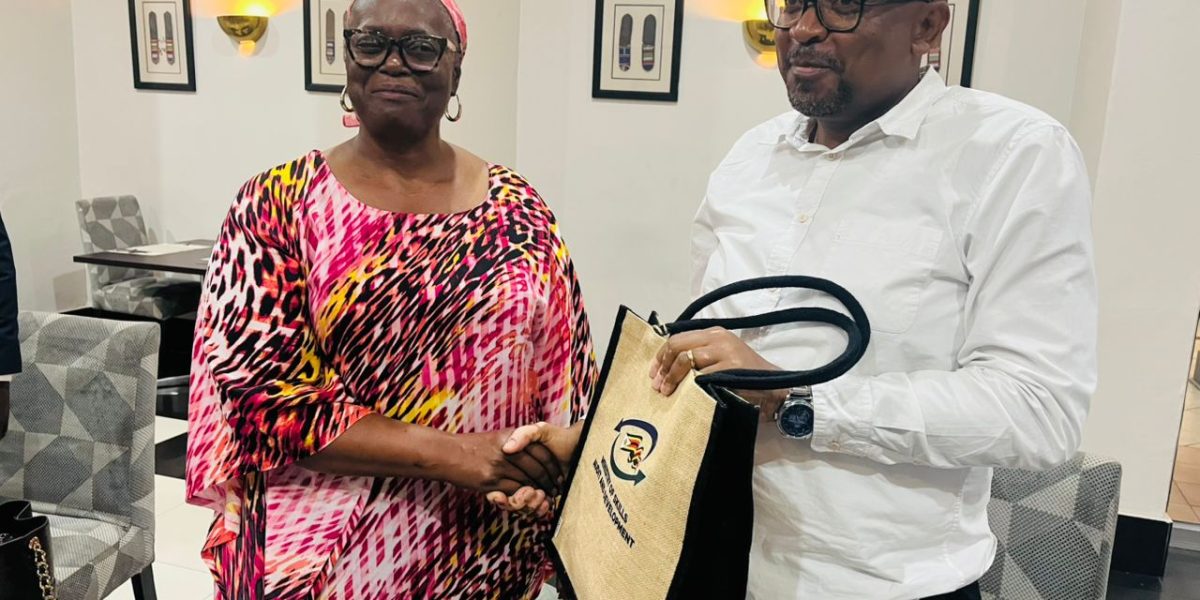HARARE – The Ministry of Skills Audit and Development, in collaboration with the Ministry of Higher and Tertiary Education, Innovation, Science and Technology Development, successfully concluded a week-long benchmarking visit by a high-level delegation from the United Republic of Tanzania’s Ministry of Education, Science and Technology on Friday, 24 October 2025.
The visit, which spanned five days and covered multiple institutions across three cities, marks a significant milestone in regional cooperation on technical and vocational education and training (TVET), skills development and innovation systems within the Southern African Development Community (SADC) framework.
Ambassador Rudo M. Chitiga, Permanent Secretary in the Ministry of Skills Audit and Development, welcomed the Tanzanian delegation at the inaugural meeting held at the Ministry’s boardroom in Pax House on Tuesday, emphasising that the visit was “strategic, not ceremonial.”
“This visit marks a critical step in cementing our cooperation and translating shared intent into tangible outcomes,” Ambassador Chitiga stated. “We are here to exchange ideas and co-create solutions that will shape the future of our two great nations.”
The week-long engagement focused on exploring collaboration opportunities in Technical and Vocational Education and Training (TVET), skills development in emerging sectors and technologies, curriculum development and innovation and start-ups incubation. A draft Memorandum of Understanding between the two ministries was under active consideration, outlining a comprehensive framework for sustained institutional partnerships.
 The benchmarking tour commenced on Monday with visits to the Scientific, Industrial and Research Development Centre (SIRDC). At SIRDC, delegates witnessed firsthand how Zimbabwe translates research into industrial solutions. The centre’s work on applied research and technology transfer provided concrete examples of how research institutions can support industrialisation agendas, a key interest area for Tanzania as it pursues its own development objectives.
The benchmarking tour commenced on Monday with visits to the Scientific, Industrial and Research Development Centre (SIRDC). At SIRDC, delegates witnessed firsthand how Zimbabwe translates research into industrial solutions. The centre’s work on applied research and technology transfer provided concrete examples of how research institutions can support industrialisation agendas, a key interest area for Tanzania as it pursues its own development objectives.
Tuesday afternoon’s visit to the University of Zimbabwe proved particularly enlightening. The delegation toured the Innovation Hub, where student-led projects demonstrated the potential of university-industry partnerships. However, the highlight that sparked animated discussions was the university’s bread-making factory, a fully operational commercial enterprise that generates revenue while providing hands-on business training for students.
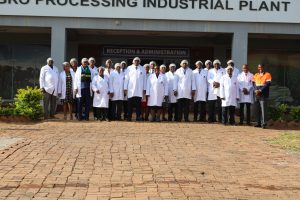
“The bread factory represents exactly the kind of income-generating model we want to explore,” noted a senior member of the Tanzanian delegation. “It shows how universities can become less dependent on government funding while giving students real-world business experience.”
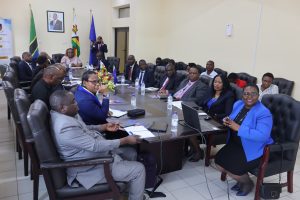
Discussions at UZ delved into collaborative course design, qualifications harmonisation across SADC, research commercialisation strategies, and mechanisms for establishing sustainable university-industry linkages. Both delegations recognised that harmonising qualifications frameworks would facilitate greater mobility of skilled workers within the SADC region while enhancing the international competitiveness of graduates from both countries.
Wednesday’s programme highlighted two critical aspects of modern education systems: environmental sustainability and quality assurance. The visit to Geo Pomona Waste-to-Energy Plant demonstrated practical applications of emerging skills in the circular economy and green transition. Delegates observed how environmental engineering and green technology skills are being deployed to address waste management challenges while generating renewable energy.
 “This is the future,” remarked Tanzania delegation leader, the Executive Secretary of Tanzania Commission for Universities, Professor Charles Kihampa. “Climate change and environmental sustainability aren’t abstract concepts here. They’re creating real employment opportunities and solving urgent problems. We are impressed and would like to deploy the same concept back home in Tanzania.”
“This is the future,” remarked Tanzania delegation leader, the Executive Secretary of Tanzania Commission for Universities, Professor Charles Kihampa. “Climate change and environmental sustainability aren’t abstract concepts here. They’re creating real employment opportunities and solving urgent problems. We are impressed and would like to deploy the same concept back home in Tanzania.”
The afternoon session at the Zimbabwe Council for Higher Education (ZIMCHE) focused on quality assurance mechanisms, accreditation standards and qualifications frameworks. Discussions centered on maintaining educational quality while expanding access, regional harmonisation of standards and ensuring that TVET systems produce graduates who meet industry requirements. The exchange provided both nations with insights into different approaches to quality assurance and potential areas for mutual recognition agreements.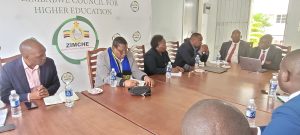
A significant and sobering part of the dialogue at ZIMCHE was dedicated to the shared challenge of combating academic malpractice, specifically the proliferation of dubious degrees, fake qualifications and the concerning erosion of credibility surrounding certain honorary awards and PhDs in both countries. The delegations acknowledged that the phenomenon poses a direct threat to the integrity of national qualifications frameworks, undermines public trust in higher education and devalues legitimate academic achievement. In response, ZIMCHE officials elaborated on their stringent verification protocols and the robust mechanisms they are developing to audit and blacklist institutions involved in credential mills. Both parties concurred that for any mutual recognition agreement to be credible, it must be underpinned by aggressive joint strategies to expose and eliminate fraudulent credentials, ensuring that honorary degrees are awarded with genuine merit and that the prestige of a PhD is protected from dilution, thereby safeguarding the value of qualifications for all graduates and professionals across the SADC region.
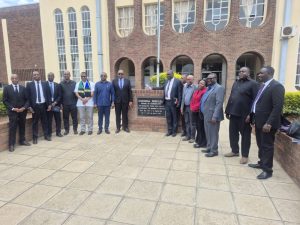 Thursday’s journey to Marondera showcased Zimbabwe’s commitment to delivering quality technical education beyond urban centres. At Kushinga Phikelela Polytechnic College, delegates toured a well-equipped workshop where students demonstrated practical skills in dressmaking.
Thursday’s journey to Marondera showcased Zimbabwe’s commitment to delivering quality technical education beyond urban centres. At Kushinga Phikelela Polytechnic College, delegates toured a well-equipped workshop where students demonstrated practical skills in dressmaking.
“The emphasis on hands-on training is impressive,” observed a Tanzanian education official. “Students aren’t just learning theory, they’re building, creating, fixing things. This is what employers need.”
Friday’s visit to Kwekwe Polytechnic College brought the institutional tour full circle. Located in Zimbabwe’s mining heartland, Kwekwe Poly showcases how technical education adapts to regional economic contexts. The college’s programmes respond to local industry needs, creating clear pathways from training to employment. The college’s innovative strategy of entering into Memoranda of Understanding with business and industry in the Midlands province has greatly helped students secure places for work-related learning.
“What we’ve seen at Kwekwe confirms what we suspected,” said Professor Kihampa. “Rural polytechnics aren’t second-tier institutions. When properly resourced and connected to local industries, they become engines of rural development and industrialisation.”
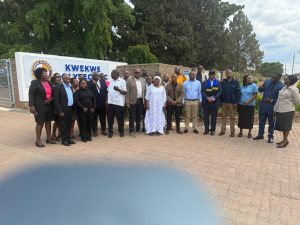
Discussions at Kwekwe expanded to cover accreditation of courses, commercialisation of student innovations, micro-qualifications and flexible learning pathways, and potential areas of cooperation in skills development. The conversations reflected both nations’ recognition that 21st-century skills development must be agile, responsive to rapidly changing labour markets and inclusive of diverse learning pathways.
The week concluded with an intensive debriefing session at the Ministry of Skills Audit and Development. Both delegations summarised key learnings, identified priority areas for collaboration and outlined concrete next steps for operationalising the proposed Memorandum of Understanding.
At the farewell dinner she hosted for the delegation, Ambassador Chitiga emphasised that the Ministry views the engagement not as an isolated event but as the beginning of a long-term strategic partnership. “What we’ve built this week goes beyond information sharing. We’ve established relationships, identified champions in both countries and created momentum for sustained cooperation.”
The success of the benchmarking visit has implications beyond the bilateral Zimbabwe-Tanzania relationship. It demonstrates how SADC member states can leverage each other’s strengths, learn from different approaches and build capacity collectively rather than in isolation. The visit also highlighted Zimbabwe’s growing reputation as a regional leader in TVET and skills development. Despite economic challenges, Zimbabwe has maintained quality in technical education, fostered innovation in tertiary institutions and developed frameworks for inclusive skills recognition. These achievements are now attracting attention from neighboring countries seeking to strengthen their own systems.
Members of the Tanzanian delegation expressed appreciation for the comprehensive programme and the insights gained. “We came with questions and leave with answers, and new questions that will drive our reforms,” said one senior official. “The openness with which Zimbabwean institutions shared their successes and challenges has been invaluable.”
The week-long benchmarking visit by Tanzania’s Ministry of Education, Science and Technology represents more than a successful diplomatic exchange. It demonstrates the power of regional cooperation in addressing shared development challenges, the value of learning from peers who understand similar contexts, and the potential for African nations to build solutions together rather than relying solely on external models.
As Zimbabwe continues to refine its skills development systems and Tanzania applies lessons learned to its own reforms, both nations contribute to a broader African narrative, one where collaboration, innovation, and mutual support drive progress toward shared prosperity. The partnership forged this week between Zimbabwe and Tanzania in skills development may well become a model for regional integration across other sectors, proving that when African nations work together, everyone benefits.


